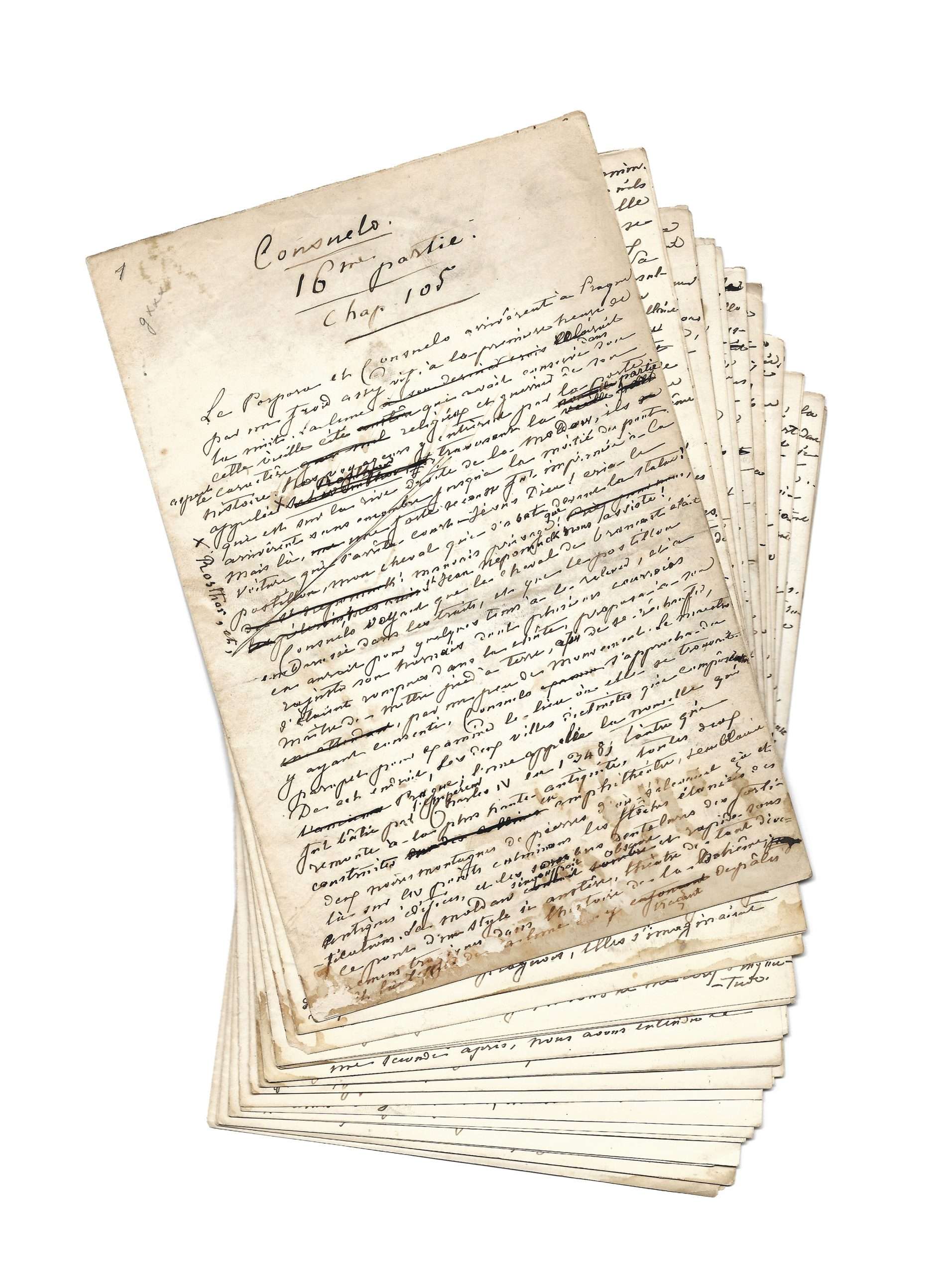SAND, George (1804-1876)
Autograph manuscript signed « G Sand » for her novel Consuelo [fragments]
[Nohant and Paris, between late 1842 and early 1843] 27 p. in-8°
« End of Consuelo »
Fact sheet
SAND, George (1804-1876)
Autograph manuscript signed « G Sand » for her novel Consuelo [fragments]
[Nohant and Paris, between late 1842 and early 1843] 27 p. in-8° (13,5 x 20,5 cm)
Some stains, wetting marks and browning
Precious manuscript forming the last part of Consuelo, one of the greatest novels of the nineteenth century
The offered manuscript is composed as follows:
– Chapter 105, which constitutes the beginning of the sixteenth and last part of the novel
That is 10 p. in-8° [missing one page]
– Chapter 106
That is 10 p. in-8° [missing one and a half page]
– Conclusion
That is 7 p. in-8° [the very first lines of the conclusion are missing, that is half a page]
The missing pages mentioned above are now in a single private collection.
Consuelo was published in the Revue indépendante (co-founded by Sand) from February 1, 1842 to March 25, 1843, in 16 “parts”, representing 105 chapters (there was a numbering error by the Independent Review between chapters 19 and 29) and a conclusion.
The manuscript of the novel was taken apart already in the nineteenth century. Fragments exist at the Musée de La Châtre, the University of Ottawa Library, the Bibliothèque historique de la Ville de Paris, and private collections.
Consuelo’s manuscripts are very rarely put up for sale publicly. We note that of the Sickles collection, sold in April 1989, then that of the Cortot collection, in October 2019.
The manuscript presented is written in brown ink on the front of the sheets (often double), very full, of a first draft, fast and tight. It is punctuated by abundant erases, corrections and deletions. Some passages are added, leaving several variants with the final text.
A major work of the writer, Consuelo tells the social rise of a bohemian who will become a renowned singer and composer. The character will reveal herself by the strength of her talent in the very masculine world of musical creation, undermining the stereotypes of femininity and making the novel an avant-garde work, like its author.
Provenance:
Louis Goubert collection
Then Jean-Louis Valdez, by descent
